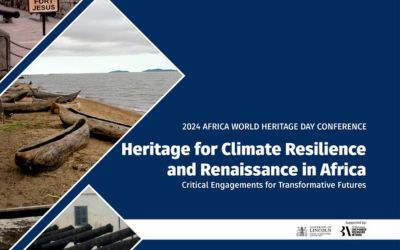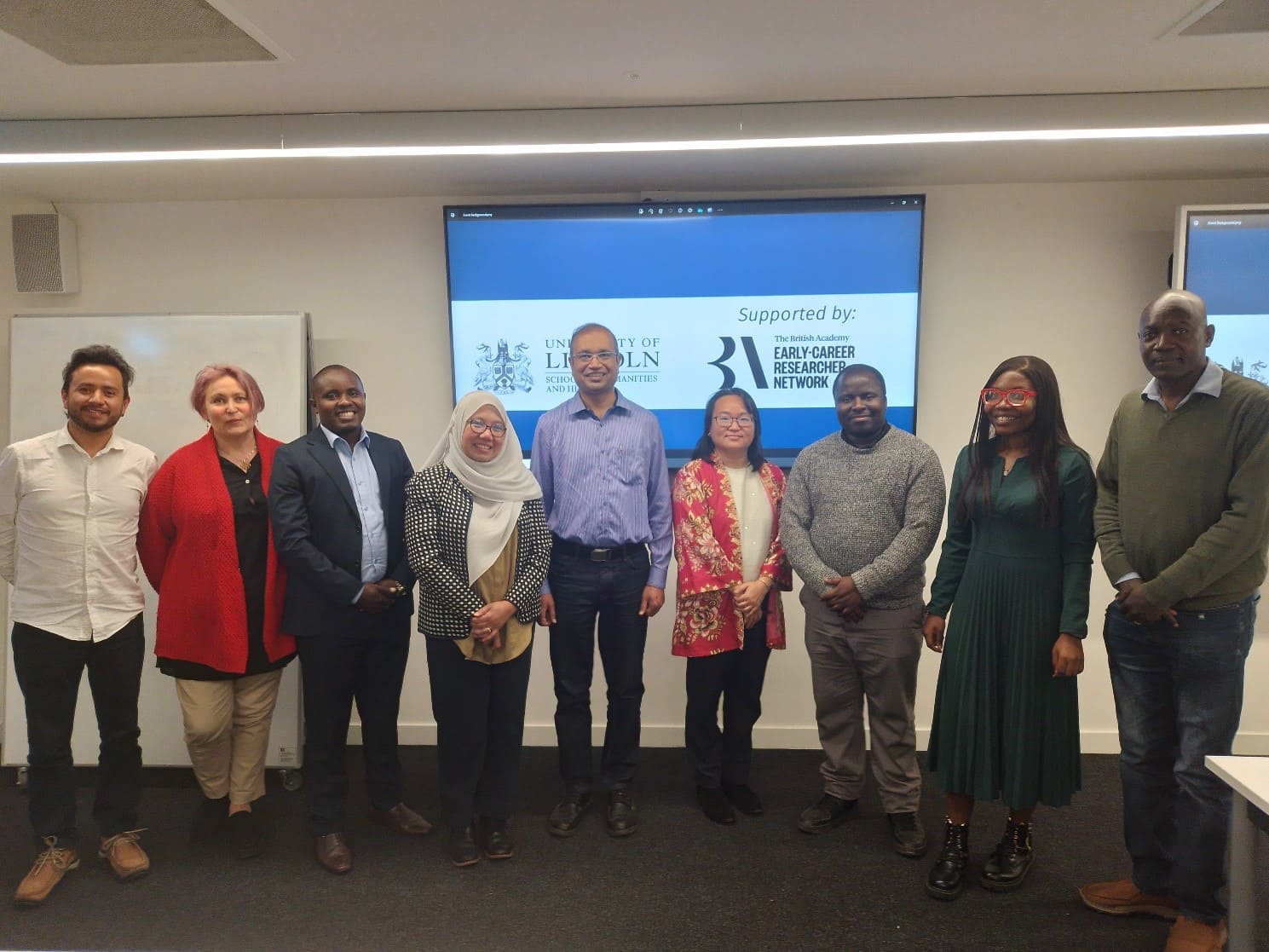Conference - Heritage for Climate Resilience and Renaissance in Africa
 This year, African World Heritage Day was celebrated to highlight the role and significance of heritage in improving climate resilience across African communities.
This year, African World Heritage Day was celebrated to highlight the role and significance of heritage in improving climate resilience across African communities.
Emerging researchers from 32 countries within and outside of Africa collaborated with the University of Lincoln, UK, and the British Academy Early Career Researchers Network (BA-ECRN) to organise a conference on ‘Heritage for Climate Resilience and Renaissance in Africa: Critical Engagements for Transformative Futures’ on 9 May 2024.
The conversation started with insightful presentations from Dr Hossam Mahdy (President of ICOMOS CIAV) on Heritage for Climate Resilience and Renaissance in Africa through the lens of the Venice Charter followed by presentations on different aspects of African heritage. Efua Oyofo, an independent researcher and storyteller, provided insights on ways to leverage audio-visual African storytelling to allow cultural decolonisation.
The conference was divided into 3 themes. Session 1 included presentations from Anne Kairu (University of Birmingham, UK), Olawale Akinrinde (University of Johannesburg, South Africa), Calvince Ouko (Co-operative University of Kenya, Kenya), Aliyu Abdu (ICOMOS Nigeria) and Tariq Umar (University of the West of England, UK). They discussed the complexities involved in enhancing climate resilience and transforming communities through heritage to achieve the kind of futures desired by the communities.
In Session 2, Siyan Oyeweso (Ocun State University, Nigeria), Zosu Taiwo and Olawale Yemisi (CBCIU, Nigeria), Olufemi Adetunji (ICOMOS Board member / University of Lincoln, UK), Abiola Tella (University of Ibadan, Nigeria), Nancy Marangu (Chemichemi Foundation), Oluwatimileyin Shonowo, Kehinde Bruwa, Grant Tregonning and Diego Pajarito Grajales (University of Glasgow, UK) and Bunmi Alugbin (University of Lagos, Nigeria) discussed different knowledge systems and innovations that influence the protection and valorisation of heritage.
Session 3 featured presentations from Gordon Omenya (University of Bristol, UK), Paola Vargas Arana (University of Manchester, UK), Natalia Dniprenko (University of Creative Arts, UK) and Bridget Menyeh (Robert Gordon University, UK), who discussed different approaches to decolonisation of African heritage and identity.
Other researchers and practitioners — Derrick Odidi, Olivia Nthoi (Botho University), Elissa Rukundo (Digital Heritage Preservationist Platform, Rwanda), Lauren England, Eka Ikpe and Roberta Comunian (King’s College London, UK) and Nikolas Perneczky (Queen Mary University of London, UK) — presented flash talks on different aspects and ways to leverage heritage to address wider societal challenges affecting African communities.
The conference ended with closing remarks from Chilangwa Chaiwa, the Vice President of ICOMOS for the Africa region. She reflected on different issues raised by the speakers to emphasize the significance of heritage for the social, economic and environmental development of African communities. Chilangwa Chaiwa recommended that the Africa Union Agenda 2063 be given more significance to create inclusive growth, strong cultural identity, common heritage, values and ethics.
From left to right: Diego Pajarito Grajales, Nataliia Dniprenko, Calvince Ouko, Farah Shahrin, Tariq Umar, Diana Abdullah, Olufemi Adetunji, Oluwatimilehin Shonowo, Gordon Omenya
See more

